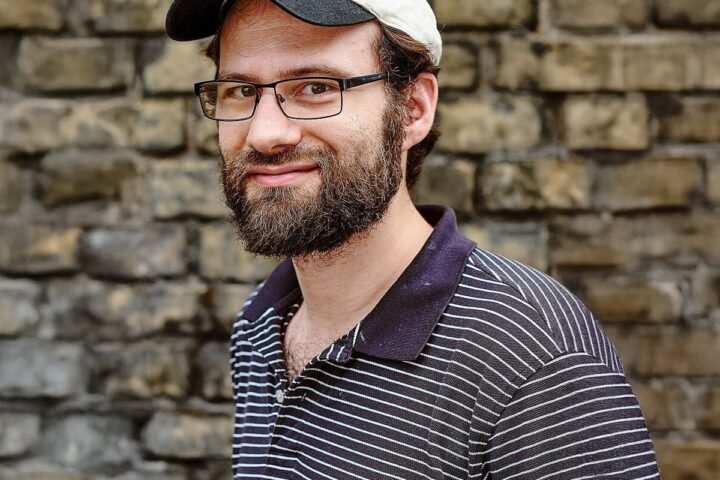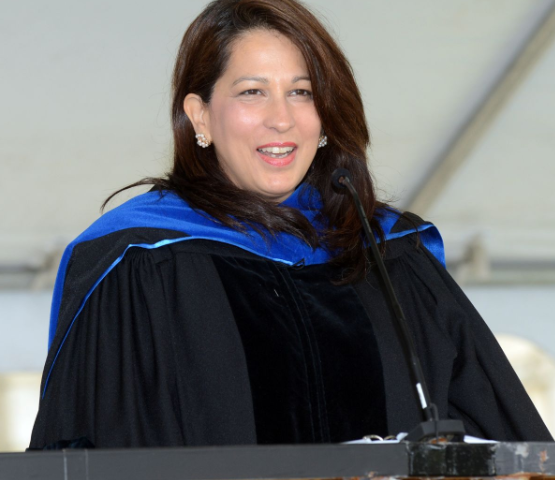One year later, Karamvir Singh sat quietly, with his hands folded in the conference room of his office, room 319 in the Student Union, waiting to be interviewed. His once energetic eyes during his candidacy last April, now showed a sudden aged weariness.
Singh, 21, is the president of the student government run by Students for Change, a political party that emerged from defected members of United People, citing disapproval on UP’s heavy influence by alumni and inefficient internal operations after the party won elections.
During his candidacy last spring, Singh told The Knight News that once students “get into UP there’s no real motivation to make the change. It’s more about getting elected and after that, they are not so committed.”
While the Student Association has yet to make good on its platforms, they spent approximately $75,000 out of the estimated $84,000 it was allocated for the Academic Year 2012-2013, in one semester, according to the Queens College Association Statement of Revenue and Expenditures.
The not so Uncle Scrooge party
Touting its ability to fulfill students’ wishes with carefully decided platforms, SFC seemed like a breath of fresh air after four decades of a one party rule. Members were already active on campus so the expectation of new ideas and their implementation looked promising. However, change became cumbersome, dollars hard to hold on to.
SFC attempted to remedy the lack of commitment attribute of UP that Singh vocalized. The party moved the computer lab from the SA office to the Student Union basement to increase accessibility for students, while transforming the office into a lounge for students with new furniture, a new television, Direct TV and an Xbox. The total money spent on media expenses for the renovated lounge is at least $4,700, according to the statement. Singh also increased membership in Congress of club president meetings, saying that at least two-thirds of club presidents attend them to receive updates and voice their opinions about issues they face.
While the Singh administration made some changes, it fell short in accomplishing their campaign platforms from the 2012 election, according to some members of SA.
SA’s number one platform during its campaign was to “create better awareness about tuition hikes.” Other platforms include to “continue to fight to bring back the Vallone scholarship” and to “establish a more transparent student government.”
Of the 300 students surveyed about their opinion on tuition hikes, 260 students opposed them because it made it difficult for them to pay an extra $150 each semester. These students also said that their opinions about the tuition hikes would change if they were given detailed information explaining the reason for them.
“It’s really funny how this tuition thing works,” said Sharon Jackson, QC graduate student. “It’s really unfair how the CUNY Chancellor [Matthew Goldstein] gave himself a pay raise and he makes more than the president of the U.S., while we are sitting here paying higher tuition every semester. His pay raise is at our expense.”
Singh is a quadruple major in finance, accounting, media studies and economics with a double minor in political science and business and liberal arts. With a hefty workload on his shoulders, much of his presidency was spent learning from administration and figuring out reasons for tuition hikes by attending discussions with NYPIRG. As a result, the number one platform is deferred.
“I have to learn how things work and then have to teach it to my team and that takes a while, so some things haven’t taken into effect yet,” Singh said.
While Singh believes lack of knowledge is an obstacle to change, other SA members say the hindrance is something else.
“The idea was to create something that would be the change, but that hasn’t come to effect,” said Ernst Pierre, political chair of SA. “There really weren’t any negotiations, or meetings held where decisions were made about anything. If they had held them then I would know about it.”
Michael Bento, who initially defected from United People, recently resigned from SA and said that SFC is far from transparent.
“My reason behind resigning was the same reason I had for leaving UP during the campaign last spring. I could not and would not associate myself as a senator with a group that has neither ethical nor moral qualms when it comes to running things,” said Bento, deputy holder of chair. “I am 100 percent for transparent government and these two groups have shown me and the student body that they see it fit to conduct shady dealings out of the public sphere.”
Bento, who serves as the academic senate’s deputy holder of chair, said in previous interviews with The Knight News that he believed that CUNY Pathways was against the “democratic process.” His goal was to work with the academic senate and the student government to bring back the “shared governance.” However, he claims that curriculum legislation and advocacy responsibility fell solely on his shoulders as a ranking student senator and a member of SA. He “could only take it so far because [he] lacked the backing of a pretty much nonexistent SA academic affairs committee to help [him] reach the student body on issues directly affecting their immediate academic future.”
Singh’s eyes were gleaming with drive to be the change last spring when he reasoned his dissatisfaction with UP. When he “got in, [Singh] thought [he] could actually do things as the year went on,” but wasn’t able to do much; “there was a lot of talk but not enough doing.”
Brain Edelman, Singh’s right hand man and the vice president of the student government, shared the same sentiment, attributing the slowness to achieve platforms with the party’s time in power.
“We’re not a machine,” Edelman said. “UP was in power for 40 years and ran with the same platforms every year. We’ve only been in power for 14 weeks.”
SA also spent $2,600 on SA scarves, $8,500 on an annual national leadership conference in Orlando and at least $650 in office supplies including waste baskets and cork boards, to name a few. However, money was not spent in deciding against the platform to “bring back free printing for students” based on poor feedback from students in oral surveys and reports from OCT, according to claims by Singh.
“I think discussing platforms is like accomplishing platforms, so I think we accomplished at least four: transparency, increase social activities, library hour extension and deciding against free printing,” Singh said. “We would have made a mistake if we went with free printing because only a third used their free printing.”
Ask and you shall be given?
SFC successfully achieved one of its platforms: to “initiate more social student events and activities on campus,” by hosting events last semester, including the glow party and the three-on-three basketball tournament, thus spending approximately $50 on a sports trophy and in co-sponsorships.
Last semester, in co-sponsorships, SA allocated at least $5,000 to the annual Fright Formal hosted by the Alliance of Latin American Students, $1,000 to the Sci-Fi Club for their formal and $1,000 to the Sikh Club for their Bhangra Blowout. Additionally, The Progressive Black Student Association was allocated $250 for their Unity Social.
While this increased social events and activities on campus, some say money was not well spent.
“They have been frivolously spending on Xboxes, TVs and glow parties,” Bento said. “Why are only some clubs getting a large sum and others are not getting so much money?”
SA also co-sponsored events that will be held during the spring semester. South Asian Student Association’s Desi Formal was allocated $5,000 and $1,500 was allocated to the Guyanese Student Association’s Caribbean Night last semester, although their money will be used this semester. The Persian Club was allocated $140 and the College Union Programming Board was sponsored $3,000 for their Spring Fest this semester.
“When we give co-sponsorships we look at the club’s history,” Singh said. “If the club has a history of a well-attended event like the Fright Formal and Desi Formal, we try to give them more money. Plus, the clubs have to come to us first to ask us how much money they need. We can’t just give a club that wants $100, a thousand dollars.”
Victoria Brown, SA Senator at Large, disagrees with the allocation of funds to clubs.
“I would give only a certain percentage of the total cost of each event to the clubs as co-sponsorships and evenly spend the money during both semesters so you have wiggle room,” Brown said. “I don’t agree with everything SA does, but on an individual basis, as SA food committee chair, I was able to work with Chartwells in bringing Ginger’s Corner.”
Though SFC has many platforms to achieve, Brown is one of the only UP members to be elected by students and achieve an individual platform of hers.
A double major in service management and family and consumer science education, Brown said that Ginger’s Corner is an area in the SA diner consisting of “gluten free, wheat free, dairy free, vegan and vegetarian options for those students who suffer from allergies.”
John Andrejack, dean of students, who serves as the student government faculty advisor, said SFC’s strongest point was building a relationship with the college administration and Student Life. However, he mentioned that the student government should have spent some of the money in providing services to students who may not attend club events, such as “legal aid or free tax services.”
During their yearlong term in office, members of the student government receive a stipend, which also accounts for SFC’s spending.
To date, SA has spent at least $7,500 out of the estimated $10,800 in total stipends for the months of July through November, which includes $1,870 for the SA President Karamvir Singh, $1400 for Vice President Brian Edelman and $1,175 for treasurer Marium Sulaiman, which includes a $25 increase effective November. Other chairpersons of SA departments such as the academic, nontraditional, political/cultural chair and programming, each received stipends amounting between $100-$150, each month for five months.
“I would do it without a stipend [but] I feel that I deserve it because I tried to do my part, but I pay tuition and I lost out on working,” Pierre said. “But it’s partly my fault for not calculating what I was getting into.”
Sumit Sharma, campaign manager of SFC for the 2012 election, also received a $600 stipend as the marketing chair of SA for the months of July through September. Before graduating last year, Sharma had said in an interview with The Knight News in May 2012, that he “will have no involvement” with SFC after he graduated QC as his “job was to get his slate elected.”
However, Sharma was also a voting member of the Student Union Programming Committee, with a budget of at least $100,000, while taking a couple of classes at QC for fall 2012. The committee members consisting of appointed SA members, decide how much money to allocate each club based on the total cost of the club’s event, the percentage of co-sponsorships the organization’s coordinators accumulate and the club’s own contribution. Other voting members also included Singh and Sulaiman.
Singh said that Sharma served as the marketing chair of SA for those months because he saw that he was good at advertising for events, he had previously hosted such as the Desi Formal, but then was ”cut because [Sharma] said he didn’t want to do the work anymore.”
Not our fault
While Singh tackles obstacles of change, Edelman is setting his eyes on the upcoming election.
“We were elected by the students and if they don’t like how we are working we won’t get elected again,” Edelman said. “You can’t expect things to change in an instant. There is more to it than just writing a list of platforms and saying you’ll make it happen. The election of a new party was the first step toward change, it’s a process.”
The remaining $9,000 in the SA operating budget is enough for the spring semester, according to Edelman. However, Singh plans to use money in reserve funding. He is currently working with the College Association Budget Committee to remove SUPC and allocate part of the money to College Union Programming Board and the remaining to all the clubs for the next year. A decision on this matter has not yet been made.
“I do not think they met expectations, they had a golden opportunity and they threw it away in a blaze of avaricious indulgence. And because they were former UP [members], how they operate was learned from UP,” Bento said. “The problems inherent in the system stems from the UP system of doing things, which allows for too much consolidation of power on the president and not enough democracy. SFC was essentially UP lite.”
As of Feb. 25, approximately $3,600 remains in SA’s budget.













